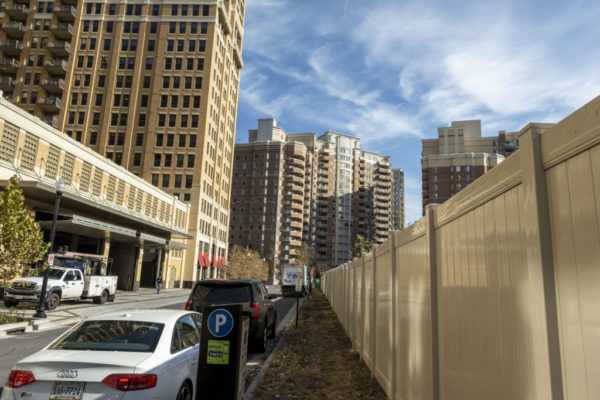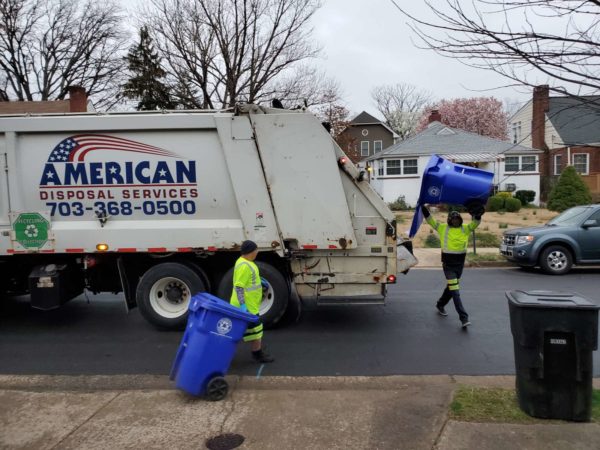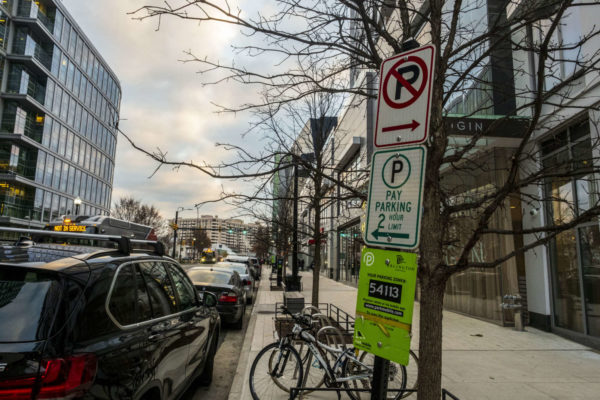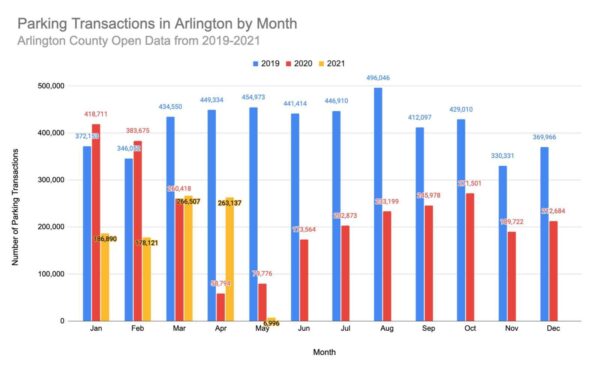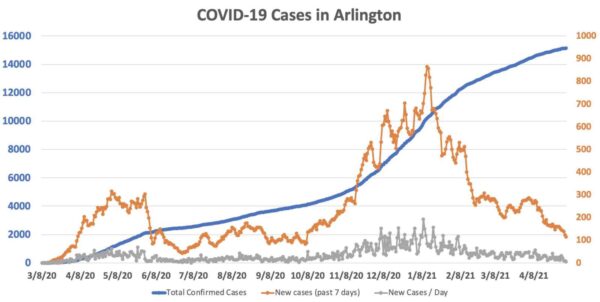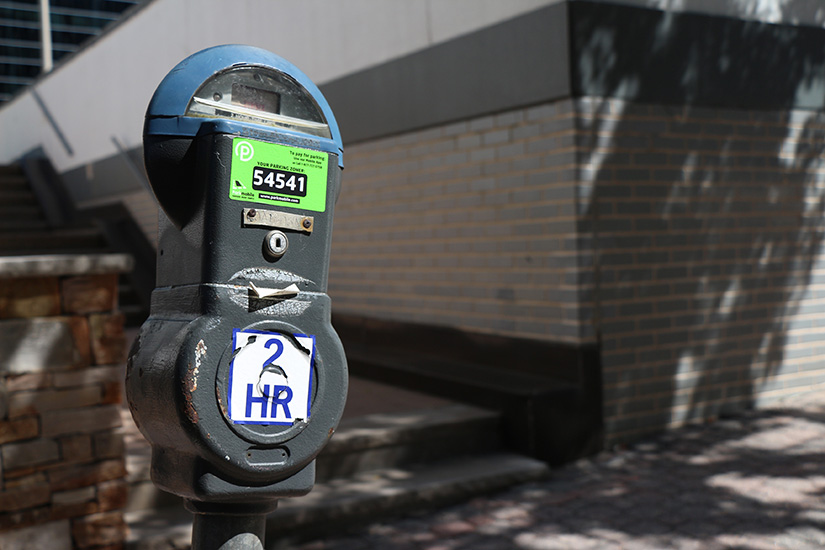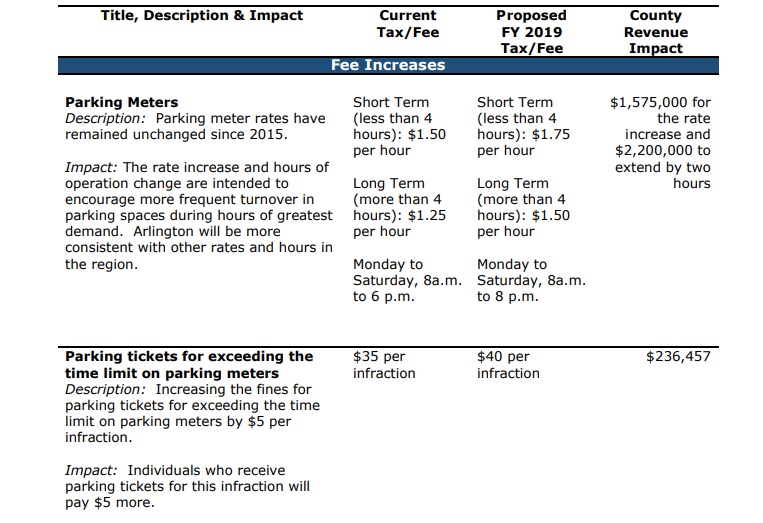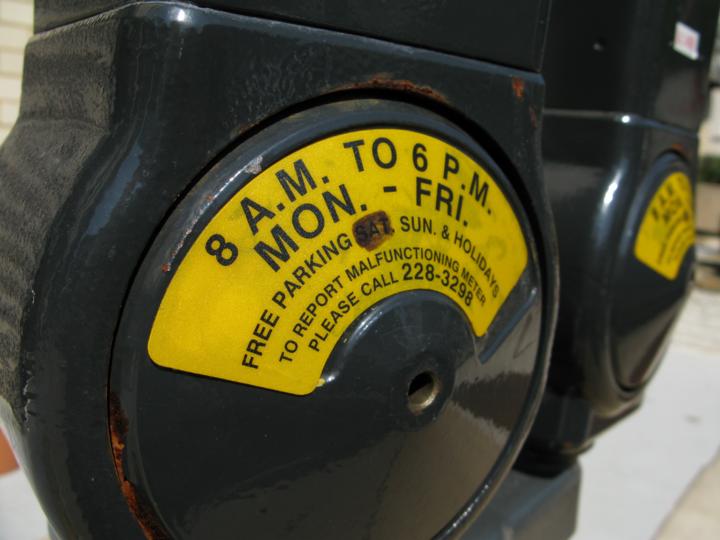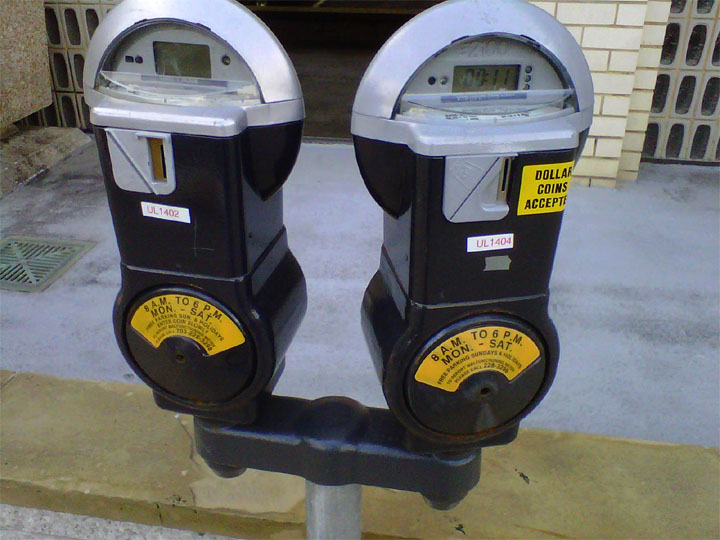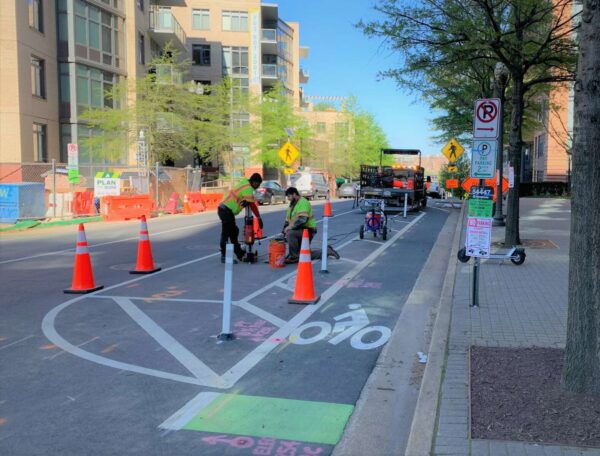
While road repaving season has kicked off in Arlington, crews are working on local roads for another reason.
They are installing traffic sensors in and marking some 4,500 parking spots in the Rosslyn-Ballston and Pentagon City-Crystal City corridors.
The spots and hardware are the foundation for a three-year, $5.4 million state-funded pilot project testing out a new way to manage parking availability and pricing, dubbed “performance parking,” which kicked off earlier this year.
Currently, parking is at a fixed rate and people have to find spots once they arrive at their destination, which can lead to double-parking or going somewhere else to, for instance, grab a meal.
Using existing meters and keeping the Parkmobile payment platform, the pilot intends to smooth out competition for convenient spots by directing people to cheaper options farther away. Prices would also vary based on time of day.
Arlington County will have a phone-friendly website with real-time availability and pricing data, which may also be accessible from some third-party apps. This information could help people plan where to park ahead of time, decreasing cruising time.
The pilot “is data-driven, using technology to better understand existing park utilization,” Melissa McMahon, the parking and curb space manager for Arlington County, told the Planning Commission this week. “We are actively managing parking supply to make parking more convenient and to reduce the negative impacts of hard-to-find parking.”
To get started, the county has to understand how people use on-street parking right now. Crews are delineating discrete spaces where, currently, it is a free-for-all between two signs, and installing one sensor per space.
Later this year, these wireless, battery-operated, in-ground sensors will start sensing when and for how long a car occupies a space. They will communicate that to “wireless gateways” located on traffic signal poles, which will relay that data to a central network server. That data is converted into a dashboard that county staff will use to make parking decisions.
Once it has enough “existing conditions” data this fall, the Dept. of Environmental Services will pick a range of prices, which it aims to bring to the Arlington County Board for approval this December. After that, for the next two years of the pilot, DES will request permission to change prices once per quarter to see the impact on driver behavior.
“This project does not create dynamically or fast-changing metered pricing,” McMahon said. “It won’t be uncertain on a day to day basis. If you’re going into a neighborhood routinely you’ll have a sense of where the lower price spots are and where the higher priced spots are.”
She said the goal is not to increase overall meter revenue, and blocks with lower rates may cancel out those with higher rates.


